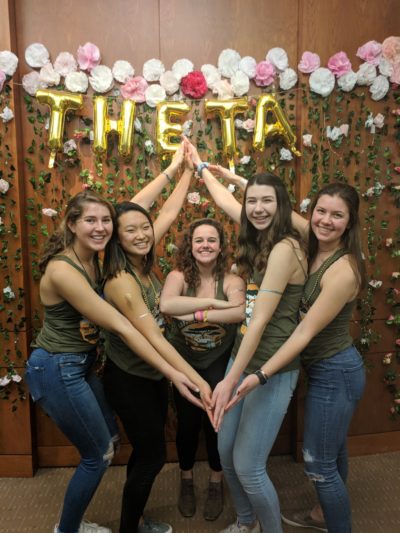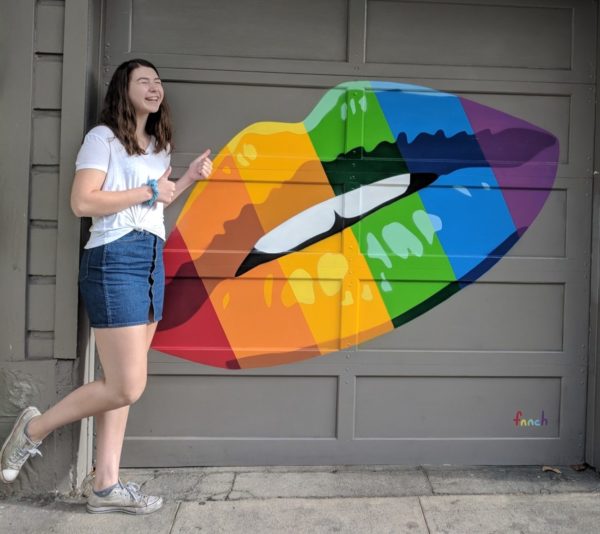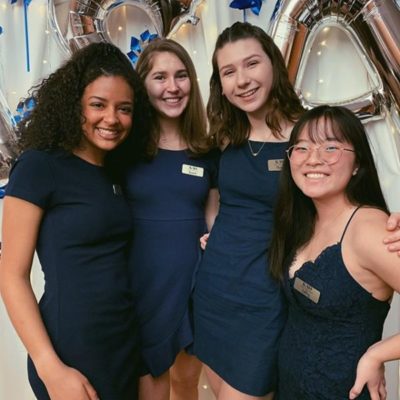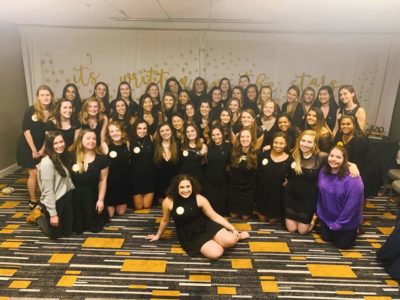Everyone always says the worst part about joining a sorority is recruitment: long hours, endless small talk and sore cheeks from all the forced smiling.
But no one mentions having a panic attack because you saw the girl who was once homophobic to you.
When I first joined my sorority as a freshman at Boston University, I didn’t know I was gay.

It wasn’t even on my radar. If it was, I wouldn’t have gone through recruitment, a process I was already reluctant to try out. Among various other bad connotations, sororities aren’t quite known for being the most LGBTQ+ friendly community.
Luckily, when I did come out, my sorority treated me with the same respect as always. But in the back of my mind, I didn’t entirely trust it; I was never sure when I would come off as too out or too gay for them to treat me the same. So, when confronted with the memory of a homophobic experience, the last place I expected to find a support system was within a sorority.
We were halfway through the first and longest day of recruitment. My sorority was talking to a group of girls who were just leaving the room. They passed out the door one by one in a haze of high heels, wide smiles and loud voices. But one stood out from the blur as we made eye contact. As soon as her eyes darted away like a kid in trouble, I felt my face flush, my hands get shaky, and my heartbeat too fast for comfort. The oh too familiar feeling of a panic attack started to work its way through my limbs.
I don’t like to hold grudges, but I can’t forget the moment I first encountered her a few months prior. It was all for going on a date with a girl at a friend’s party. It wasn’t that she was violent to me, even verbally, but she was still the first person to be outwardly homophobic towards me.
You know what they say, you never forget your first.

In the moment she let her phobia show, she transformed from a random stranger at the party to all the things I hadn’t yet had to face as a young gay woman. She embodied all the people that will look at me with hatred and see me as someone to single out or make fun of or even hurt. She became all the possibilities the world of homophobia had to offer.
That split-second moment of eye contact reminded me of every ounce of hatred others have shown me in all the homophobic incidents that followed the first. It was that feeling that made my heart hurt and my breathing difficult to control.
I tried to walk calmly to my closest friend to tell her what happened, feeling dumb and stupid and overdramatic for even mentioning it. As my friend comforted me, the girls in my sorority came over to me one by one. Their protective and caring voices asked, “Are you okay? Who was it? Do you need something? How can I help?” Some I had never really talked to before, but all wanted me to feel safe and secure.
Standing in the room of the last place in which I expected to find solitude a year ago, I found a safe haven and a support system.

Before that moment during recruitment, I was never eager to call myself a sorority woman. I knew the connotations that came with the title. But while the associations may not all be entirely false (I am both a white and a privileged woman after all), I made peace with my identity not only as a gay woman but also as a sorority woman. It was through my sorority’s love and acceptance that I learned to be proud of myself because even if I wasn’t, they’d be proud for me anyway.



















